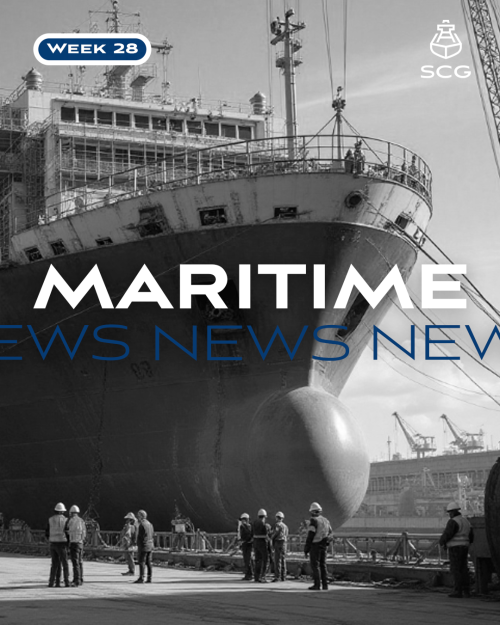
Maritime news . Week 28
In A Historic First, ITF Staff To Strike Over Job Cuts & Workers’ Rights
The International Transport Workers’ Federation (ITF) is facing a strike from its employees for the first time in its history. Over 100 unionised workers based in London, who are members of the British trade union Unite, have voted to take industrial action against ITF’s leadership over a major restructuring plan.
The organisation has announced a proposal to cut its workforce by 25 percent this year. According to Unite, the planned layoffs come while executive salaries at the ITF have gone up by 47 percent between 2021 and 2024.
The general secretary’s total pay package has reached £309,000 ($420,000), making it one of the highest in the global union sector. Although high, it is still less than half the salary of Harold Daggett, president of the International Longshoremen’s Association (ILA), who earns around $900,000 annually. ILA is one of ITF’s largest regional affiliates.
Why shipping needs a new breed of executive
Irene Rosberg, programme director of the Blue MBA at Copenhagen Business School, writes for Splash today.
Leadership in the maritime industry is being tested like never before. While ships navigate increasingly complex trade routes and operational risks, the same must be demanded of those guiding the industry from the boardroom. Yet many of those boardrooms are still stuck in the past. As geopolitical tensions rise, digitalisation accelerates and the regulatory landscape shifts, we must ask a hard question: do we have the right people making the big decisions at sea and on shore?
NEURA & Hyundai Start Real-World Testing Of Robots For Shipbuilding
NEURA Robotics has partnered with HD Hyundai Samho and HD Hyundai Robotics to jointly develop and test humanoid and quadruped robots. The three companies have come together to combine their strengths and introduce robotics into shipyards, especially at a time when the industry is dealing with a shortage of skilled workers.
NEURA Robotics, known for its work in cognitive robotics, is contributing its technology to the collaboration. This includes the 4NE1 humanoid robot platform, which will play a key role in developing robot-based solutions for shipbuilding tasks.
Shipping Insurance Doubles After Houthis Sink 2 Ships & Kill 4 Seafarers In Red Sea
The cost of insuring ships passing through the Red Sea has more than doubled after Yemeni Houthis attacked two commercial vessels this week, killing at least four seafarers. The sudden escalation follows several months of reduced activity in the region.
Industry sources confirmed that war risk premiums have now risen to about 0.7% of a ship’s value, compared to 0.3% just last week. In some cases, underwriters have stopped offering cover for voyages altogether.
